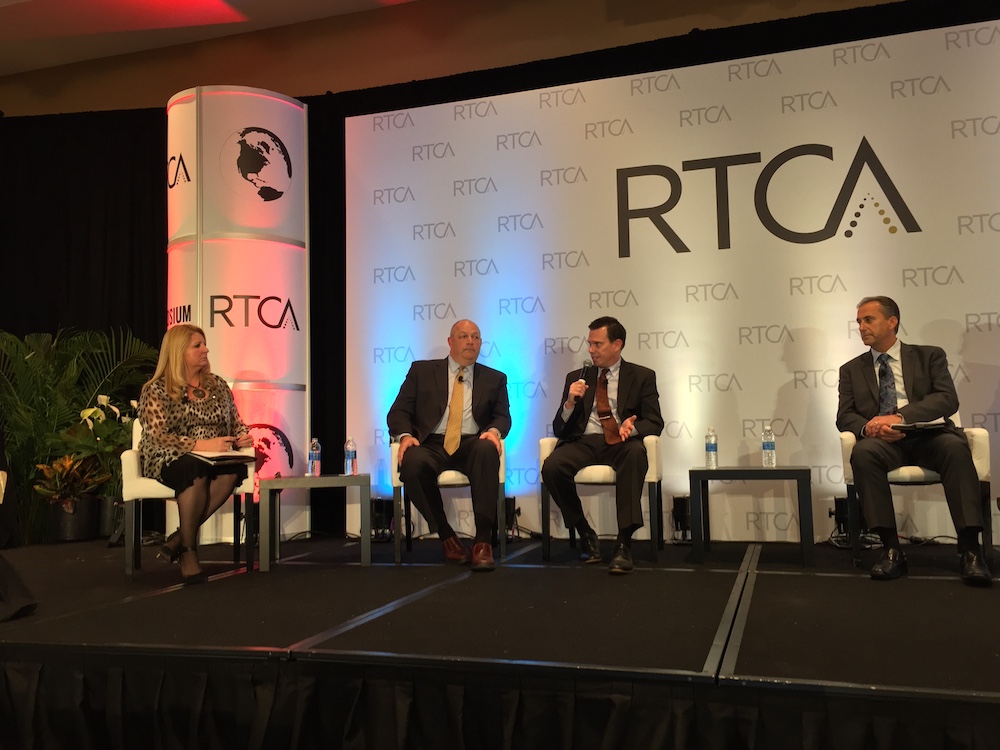
June 16, 2017 // Executive Vice President Trish Gilbert Discusses Implementing NextGen Priorities
What: RTCA Global Aviation Symposium panel about Implementing NextGen Priorities
When: Tuesday, June 13, 2017
Moderator:
Trish Gilbert, Executive Vice President, NATCA
- Captain Stephen M. Dickson, Senior Vice President, Flight Operations, Delta Air Lines
- Dave Knorr, Division Manager, NextGen Systems Analysis and Modeling, FAA
- Pamela Gomez, NextGen Technical Advisor, FAA
- Brian Townsend, Manager and Technical Pilot, Airspace Optimization, American Airlines
- Jesse Wijntjes, Data Communications Program Manager, FAA
Gilbert moderated a panel on implementing NextGen priorities at the 2017 RTCA (Radio Technical Commission for Aeronautics) Global Aviation Symposium. The panel brought together FAA and industry leaders to discuss the status and future of NextGen.
Gilbert led the conversation about how NextGen technologies should be integrated into the National Airspace System (NAS) and addressed concerns regarding implementation like budget and funding issues.
 |
| Pictured from left to right: Gilbert, Dickson, Wijntjes, and Townsend. |
“The more we integrate, the more we rely on others,” she noted. This collaborative approach has been proven successful time and again in implementing NextGen technologies.
Panelists discussed barriers facing implementation, highlighting that funding continues to be a challenge. The lack of a stable funding stream often leads to delayed implementation of NextGen technology, a delay in the repair of current equipment — which is especially challenging in workplaces with mixed equipage — and delays in hiring and training aviation safety professionals. Delays in hiring and training aviation safety professionals can lead to other issues like interruptions to service, delays, and decreased capacity — especially for those who work on NextGen initiatives.
In addition to funding and staffing, panelists discussed the challenge of mixed equipage in the operating environment. Gilbert highlighted the need to address how implementation may not immediately increase capacity, explaining that when a technology is implemented and training has been performed with the workforce, it does not necessarily mean the technology is being utilized. Panelists discussed that it is important to understand how pilots and controllers are using the technologies as more new technology is placed into the operating environment. Further training initiatives were proposed to ensure that controllers and pilot operators have everything they need to use all capabilities of new technology successfully.

